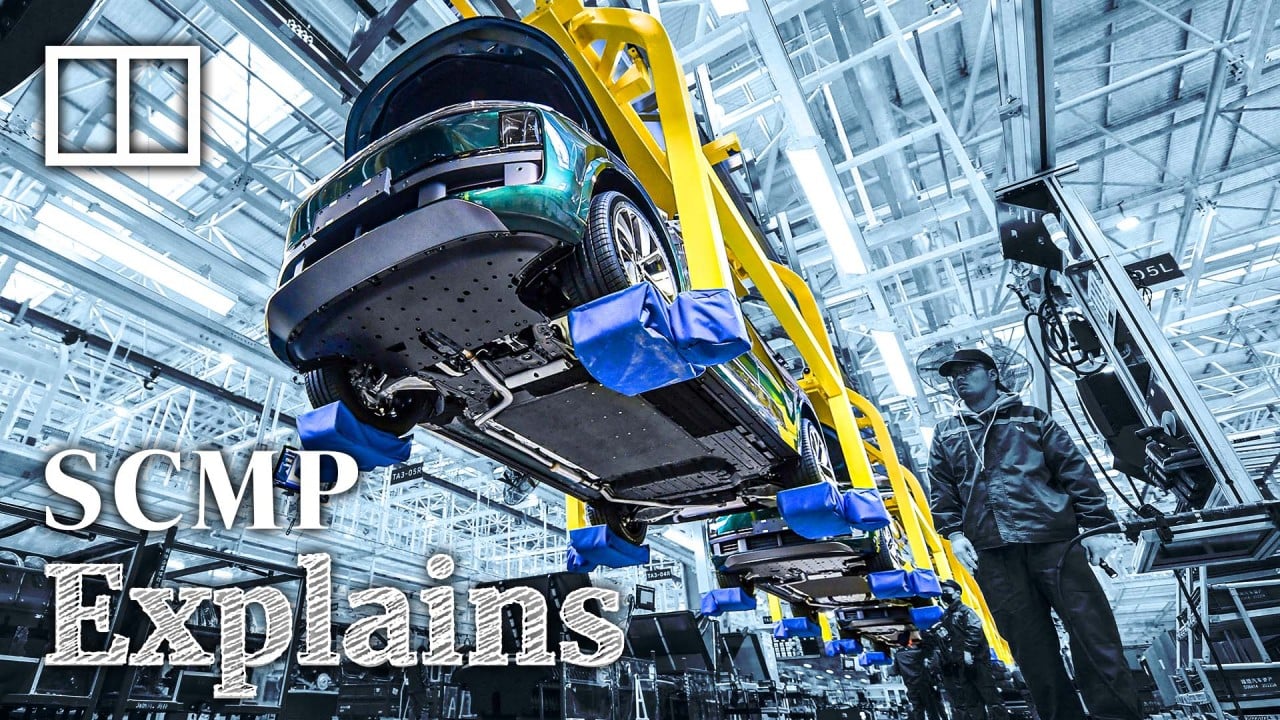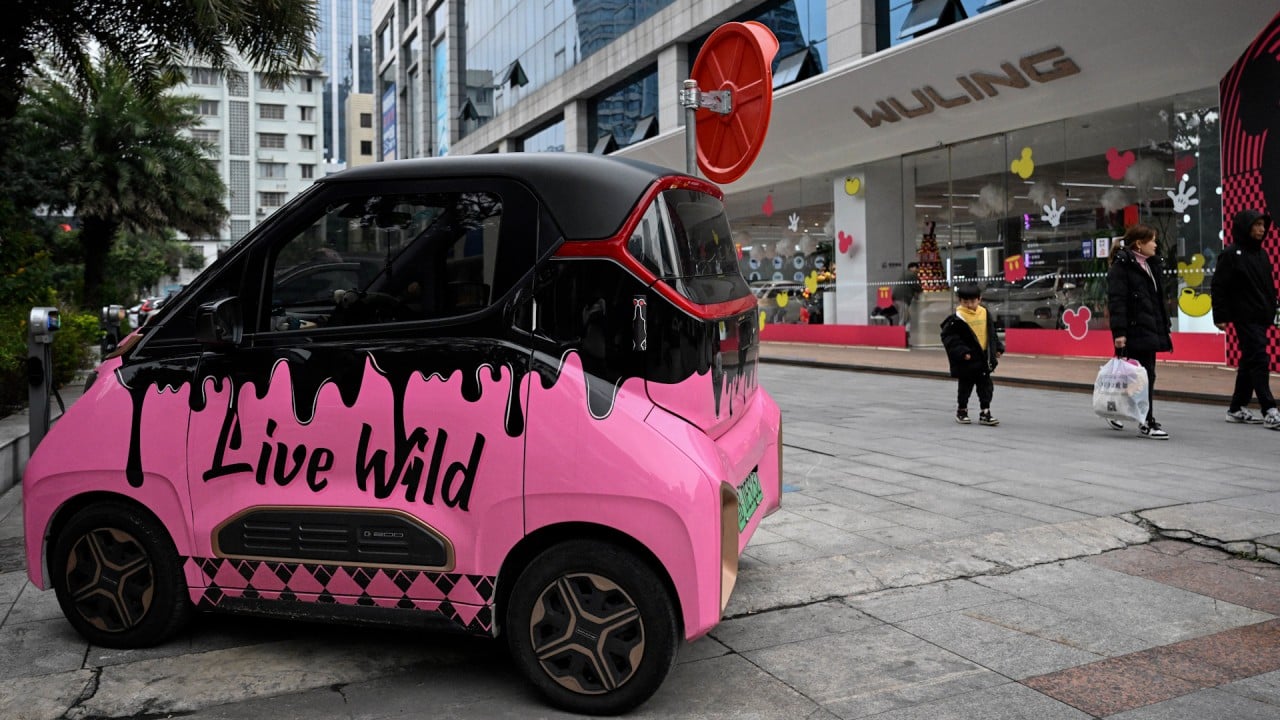
Chinese scientists create ‘water battery’ that can hold much more energy than lithium cells: study
- Team’s aqueous battery declared safer than ‘highly flammable’ non-aqueous lithium batteries, according to paper
- ‘Aqueous batteries with high energy density are possible, offering a development option for grid-scale energy storage, and even electric vehicles’: researchers
The iodine and bromine-based aqueous battery had an energy density of 1200 watt-hours per litre (Wh/L) compared to the 700Wh/L of traditional non-aqueous lithium batteries, according to a paper published in Nature Energy on April 23 by the team from the Chinese Academy of Sciences (CAS).
Their aqueous battery was also safer than non-aqueous lithium batteries, which were “highly flammable”, they said.
The stable battery “shows promising potential for the development of next-generation high-energy-density and safe rechargeable aqueous batteries”, the researchers wrote.
Their findings “may expand aqueous battery applications in the power battery field”, said corresponding author Li Xianfeng, a professor at the CAS Dalian Institute of Chemical Physics, who was quoted in a statement from the academy.
Lithium batteries are the standard used across the world because of their high energy density. Traditional lithium batteries contained a non-aqueous electrolyte – a component that allowed the battery to charge and discharge – which was flammable, the paper said.
China can win EV battery race if industry, academia cooperate: leading scientist
Aqueous batteries are made up of a water-based electrolyte which does not present the same safety risks.
However, aqueous batteries typically had a much lower energy density – the amount of energy a battery holds compared to its weight or volume – than non-aqueous batteries at under 200Wh/L, the team wrote.
This lower energy density made aqueous batteries “compelling only for large-scale stationary energy storage”, the researchers said.
To address this issue, the team developed a bromine and iodine-based electrolyte that could overcome these energy density issues.
When assembled into a battery with a cadmium-based anode, they found the battery “ran continuously for more than 300 cycles” of charging and discharging at 78 per cent energy efficiency.
When the researchers tested their electrolyte with a vanadium anode, they found the batteries’ life cycle could be extended to 1,000 cycles, “demonstrating significant stability”.
The researchers noted that the energy density of their batteries even “exceeded that of some solid electrode materials” and could be comparable in cost to traditional lithium batteries.
“Our work demonstrates that safe aqueous batteries with high energy density are possible, offering a development option for grid-scale energy storage, and even electric vehicles,” the paper said.



